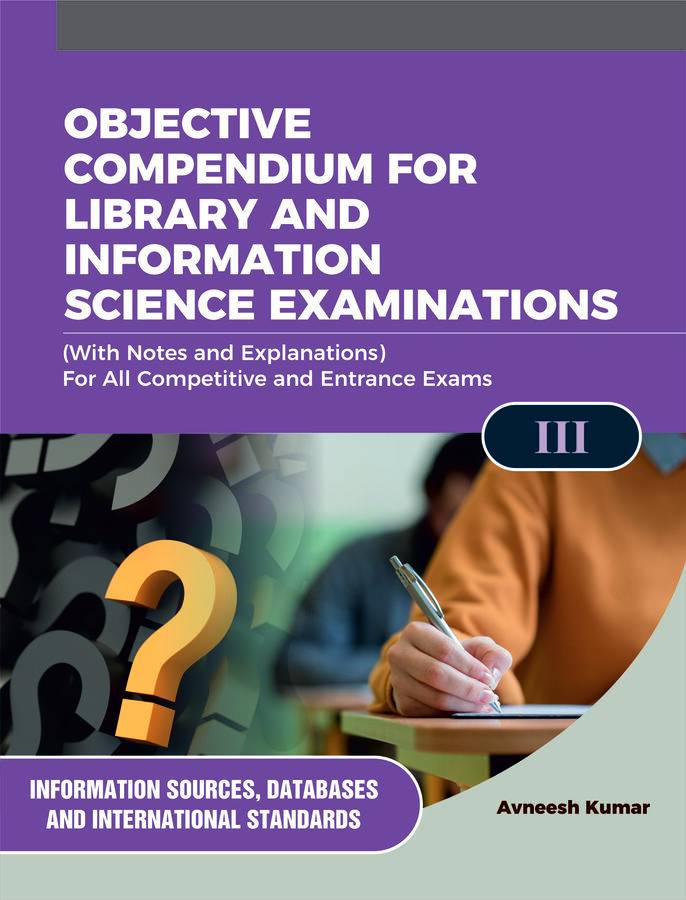Objective Compendium for Library and Information Science Examinations is an extensive compilation of more than 270 previous year question papers related to Library and Information Science over the past few years. Through this series of 9 books, that have been subdivided to comprehend the syllabus of almost all exams related to Library and Information Science, an attempt has been made to analyze and resolve maximum questions related to the aforesaid subject that have previously been asked in competitive or entrance examinations held across India.
The series is targeted to reach out and help aspirants preparing for almost any type of competitive or entrance examination in the field of library and information science such as NTA NET/JRF, SET/SLET, NVS, KVS, DSSSB, JKSSB, RSMSSB, RPSC, MPPSC, Bihar Librarian and many others.
Each question in the book is carefully analyzed and the answers are crosschecked with various sources to get the most accurate and updated information for the readers. The sources of the explanation are the different genuine websites and books that have been cited with the answers. Few of the sources are e-gyankosh, epgpathshala and some eminent books and journals which have been duly acknowledged in the text.
The author has made maximum efforts to cover as many question papers as possible, the details of which are mentioned in the book. Utmost care has been taken to make the book error free, authentic and easy to read so that the readers can extract maximum benefits from the publication.
1. Information Sources - Nature, Characteristics, Types and Formats.
2. Sources of Information - Primary, Secondary and Tertiary; Documentary and Non-Documentary.
3. Primary Information Sources (Print and Electronic) - Journals, Conference Proceedings, Patents,
Standards, Theses & Dissertations, Trade Literature.
4. Secondary Information Sources (Print and Electronic) - Dictionaries, Encyclopedias, Bibliographies,
Indexing & Abstracting, Statistical sources, Handbooks and Manuals.
5. Tertiary Information Sources (Print and Electronic)- Directories, Year Books, Almanacs.
6. Reference Sources - Bibliographical, Biographical, Educational, Language and Geographical.
7. Electronic Information Resources - Subject Gateways, Web Portals, Bulletin Boards, Discussion Forums
/Groups.
8. Databases: Bibliographic, Numeric, Full text, Multimedia; Open Access Databases.
9. Institutional and Human Resources.
10. Evaluation of Reference Sources and Web Resources.
Avneesh Kumar is currently pursuing
M.Phil. in Library and Information Science from University of Delhi. He passed
NTA-NET(LIS) in 2021 and was a JRF holder in LIS in the year 2022. He is also a
post-graduate in Commerce and has cleared NTA-NET in Commerce too. His recently
released series of 7 books on LIS examination named Cracking LIS
Examinations: Subjective and Objective approach was a great success and
also the inspiration for this series of Objective compilation.
The Author is also active on numerous
social media platforms helping students and aspirants reach their dream space.
He is currently running a platform for researchers, professionals and aspirants
named “Researcher_thought” which has more than 2500 followers and the
popularity is steeply increasing. He also has numerous active groups on
Whatsapp for exam specific queries along with a telegram channel with the name
“Researcher_thought” that helps in preparing for numerous examinations in the
field of LIS.


